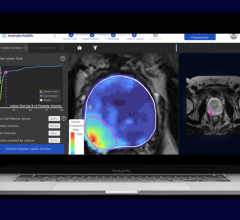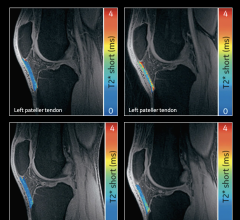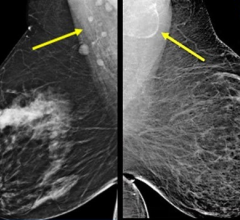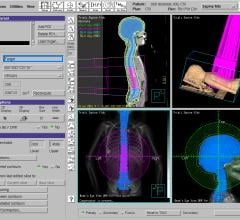February 4, 2011 – MRI screening for breast cancer delivers consistent rates of cancer detection and fewer false-positive results over time, according to a new study in Radiology.
While MRI can be more effective than mammography at identifying suspicious areas of the breast, it is not always able to distinguish between cancerous and benign lesions. This can result in additional testing and false-positive results that may cause anxiety for patients. A screening exam is considered to be false positive when its results recommend further testing or a biopsy of a suspicious finding, but no cancer is found.
“MRI is an excellent screening tool for breast cancer, but the higher rate of false-positive results keeps some women from undergoing the exam,” said the study’s co-author Martha B. Mainiero, M.D., director of the Anne C. Pappas Center for Breast Imaging at Rhode Island Hospital and associate professor of diagnostic imaging at The Warren Alpert Medical School of Brown University in Providence, R.I. “The goal of our study was to determine if the availability of prior MR images for comparison reduces the rate of false positives associated with the initial MRI breast screening exam.”
In the study, researchers reviewed reports from 650 consecutive screening MRI breast exams performed on women between September 2007 and December 2008 at Rhode Island Hospital. The women, who ranged in age from 25 to 81 years, were referred for MRI screening because they were considered to be at high risk for breast cancer.
Of the breast MRI results reviewed, 307 were the patient’s first, or baseline, screening exams and 343 were annual or repeat screening MRI exams.
In the baseline group, MRI identified two cancers for a cancer detection rate of 0.65 percent. In the repeat screening group, the cancer detection rate was nearly twice as high. cancer was found in four patients, for a rate of 1.17 percent.
Women undergoing a baseline exam were nearly four times more likely to be recommended for a follow-up MRI exam in six months to monitor suspicious findings (31 of 307 women, or 10.1 percent) than patients who had one or more prior MRI exams for comparison (9 of 343 women or 2.6 percent). The rate of false-positive results was 13 percent (39 of 299 patients) in the baseline exam group and 5.6 percent (19 of 341 patients) in the annual exam group.
“False positives are a risk of the breast MRI procedure, but the rate decreases following the initial round of screening,” Mainiero said. “This information should provide reassurance for high-risk patients who are considering undergoing annual MRI screening exams.”
For more information: www.radiology.RSNA.org


 May 29, 2024
May 29, 2024 








